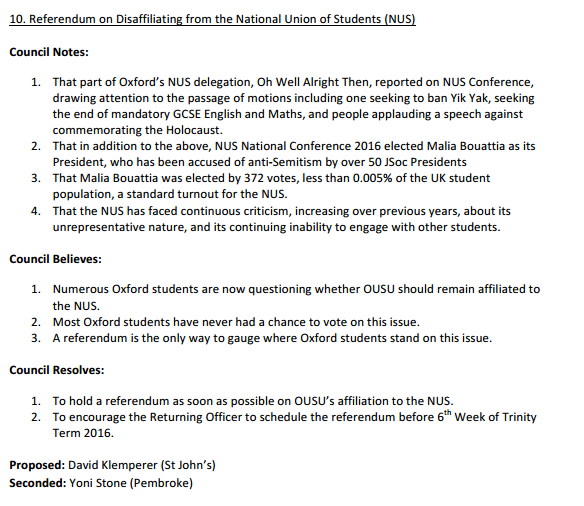After taking my seat towards the back of the Union debating chamber, uncertain whether Cherwell would be able to interview Mary Berry, the illustrious guest of the evening, I am ushered to the front by a team of officials looking scared and flustered. I get out my note pad. It seems there will be an interview. Behind me, people are chuckling about the idea of writing down any tips Mary might give the audience. I find it hard to care: after all, I’m meeting Mary. At the end of her talk, I almost barge her security out of the way, such is my haste to gain access to the Goodman Room.
Sitting down next to Mary, her smile is welcoming, but firm. “What’s this for?” she asks. Needless to say, she hadn’t heard of Cherwell. I thank her for her time, but I see her staring through me to the waving crowds outside: she’s eager to return to them. Her showmanship is striking. Pausing to wave, she asks me to “get on with it”. I eagerly oblige.
I ask her about her own path to cookery. As with most people in that generation, she tells me of her experience in the war. Baking was limited; her mother told her family that “if you all don’t have sugar in your tea, there might be enough for the occasional cake”. When ingredients were scarce, there wasn’t much time for baking lessons. Her parents never taught her to bake, given that “with only the occasional cake, they weren’t going to let me screw it up!” In the chamber she had thanked her teacher, Miss Date, for inspiring her to cook in her Home Economics lessons. When asked about cooking in schools, which was how she started, she emphatically stated that “schools must take the lead” and that every child should “come to university with at least ten basic, nutritious dishes”.
“The family meal, be it the Sunday roast or the evening supper, is certainly changing. Lots of people haven’t got time for cooking anymore. But then again, there is the rise of the slow cooker”
Over the years, Mary has authored over seventy books, some of which focused specifically on Agas; indeed, her books introduced the Aga as a regular middle-class household appliance. Throughout her career, she has been, in many ways, a pioneer, constantly searching to modernise and stay on-trend. There is “no difficulty” in finding new ideas for her books, despite my naïve belief that there must only be a certain number of recipes one can cook. “Squash and fennel are both new ingredients which have arrived in your lifetime,” she reminds me. She is always ready to do something new, inspired by her young team. “We test and test and test the recipes. I always give them to the girls [her helpers] to try with their own family at home.” Her work is nothing if not proven and tested.
The family is at the heart of her cooking. “The family meal, be it the Sunday roast or the evening supper, is certainly changing. Lots of people haven’t got time for cooking anymore. But then again, there is the rise of the slow cooker.” She repeats later on that the slow cooker is perhaps the future of family food as “you can put all your ingredients in together and just get it when you need it.” In all of her books, she is “always cooking for your family, or my family.” She constantly raises her family, both in her talk and our interview, as the main inspiration for her food. Indeed, she claims that a concentration on the family is reason for the success of the Great British Bake Off, the incredibly successful BBC1 programme in which she teams up with Paul Hollywood to judge amateur bakers, the final of which got the highest ratings figures of 2015. She sees herself on the show as a teacher, whether it’s “for the man who’s had to turn off the footie or the baby on the knee, there’s always something and someone to be taught.”
“It was always about her baking; she deserved to win on those merits alone”
The conversation seamlessly flows to the subject of Nadiya Hussein, this year’s winner. As a Muslim woman who wears hijab, Nadiya, along with her fellow finalist Tamal Rey, was criticised by the right-wing columnist Quentin Letts in the Daily Mail, for daring to be “a Muslim headscarf wearer” who would “challenge the prejudices” of the “average license-fee payer” by showing that “see, Muslims love Chelsea buns, too!” His article was widely denounced on social media, and I ask Mary what impact she thinks Nadiya’s win might have had on the Muslim community. Perhaps naïvely, she looks taken aback by the question, as if she had never thought of it before. “It was always about her baking; she deserved to win on those merits alone,” she emphasises. Race, political correctness or even personality played no part, Mr Letts. “We judge week by week, which is what makes it doubly hard for the contestants. We don’t look back.”
Her judging style has widely been praised for its fairness. She insists that for her the show must be fair, as she doesn’t want “contestants to have to buy ingredients online. They should be able to source all of their ingredients in their local supermarkets.” Asked about the challenges, she reassures the viewers that there are certainly many things they haven’t tried yet, but “I make sure they’re not too complicated – I try and leave in as much help as I can.”
Despite “moving with the times”, she certainly thinks that clean eating “is just a fad.” “I will never use quinoa [which she pronounces key-noh-ah for comic effect] in my recipes” she told the hall; I wonder what she thinks of changing cookbook styles. Last year, Prue Leith, one of Mary’s contemporaries, claimed that we lavishly drool over food illustrations before buying recipe books which are devoid of real content. Mary says that “illustration is certainly more important, and I try to put emphasis on colour, layout etc.”
However, her recipes haven’t changed in style since her early days, since “I still use only a few ingredients with clear instruction which are to the point, with hints and tips to guide you along the way.” Her recipe books strike me as a modern take on an old style; eschewing the complicated recipe books of chefs with ingredients like juniper berries that you never need, she resolutely calls herself “a cook, not a chef; I cook for families, not kitchens”. I tell her that her falafel and white bean hummus hit our family’s table before they became staples of the rise of Turko-Syrian cuisine’s popularity in the UK. She smiles graciously, aware of her own ability to judge the zeitgeist.
She seems excited for the future of food more generally. Unlike the stale days of yore, “more people are genuinely enjoying cooking.” I posit that the changes in recipe books and the increased number of cookery television programmes are the reason for this change. She agrees, but stresses that people “seem to care more about how to eat.” As for her own interest in cookery television programmes, she says that James Martin’s Saturday Kitchen is her favourite. The real change she remarks on is that “over time more and more men are into cooking; they genuinely enjoy it.”
As the interview draws to a close, I see her look again at the queues of fans waiting outside; her smile widens as she sees how keen the students are to meet her. As she waves at them, seemingly eager to meet every single person, I ask about her popularity. “I’m not famous; the public is only ever nice to me.” It’s not hard to see why. Her television personality is, it seems, more or less her real personality. Clearly desperate to return to her fans, her answers become shorter and I take my cue to leave. Thanking her for the interview, I see the consummate showman return. Her smile widens in anticipation. She picks up her pen and gets ready. She can’t wait.





